
Politics
13:03, 23-Feb-2018
EU splits expected as leaders meet for post-Brexit talks
By John Goodrich
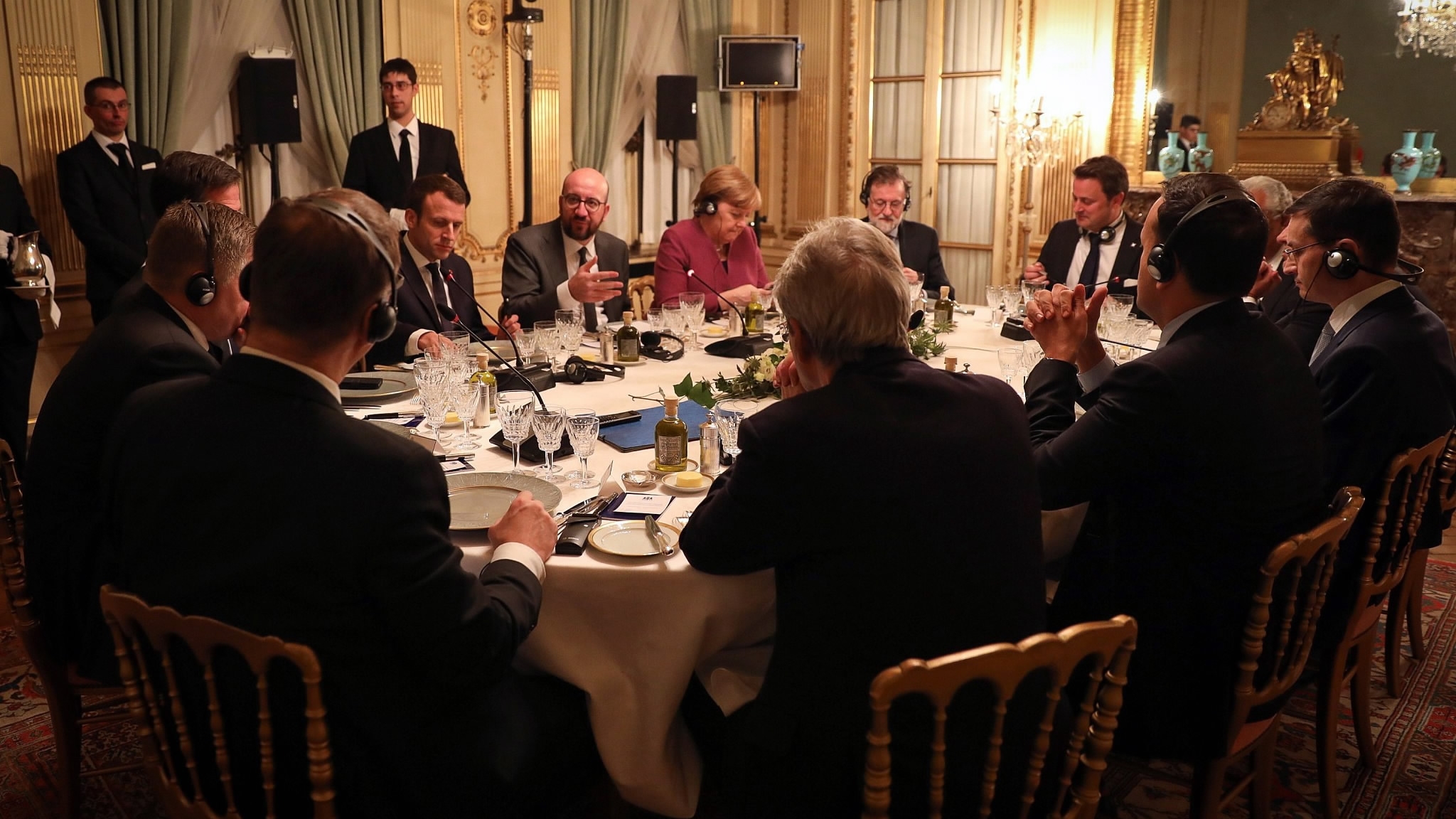
Uncertainty over Britain’s future after leaving the European Union has dominated the Brexit debate, but the direction of the bloc over the next decade will be in focus on Friday when EU leaders meet in Brussels.
The leaders of all member states, except Britain, will gather to discuss how the EU will adapt and reform after 28 becomes 27 in March 2019, with clashes expected over the bloc's future priorities.
The terms of Britain’s exit are far from being settled, but as negotiations continue EU national leaders will address issues that could lead to major reform: the bloc’s post-Brexit budget, elections to key posts and the composition of the European Parliament.
Money and integration
Finances often dictate policies, and the EU will enter preliminary budget talks on Friday with an opportunity to reshape the bloc’s priorities.
The European Commission wants the bloc’s budget to increase to 1.1-1.2 percent of EU GDP from 1.0 percent so as to fund common policies after Brexit, notably on security, defense and migration.
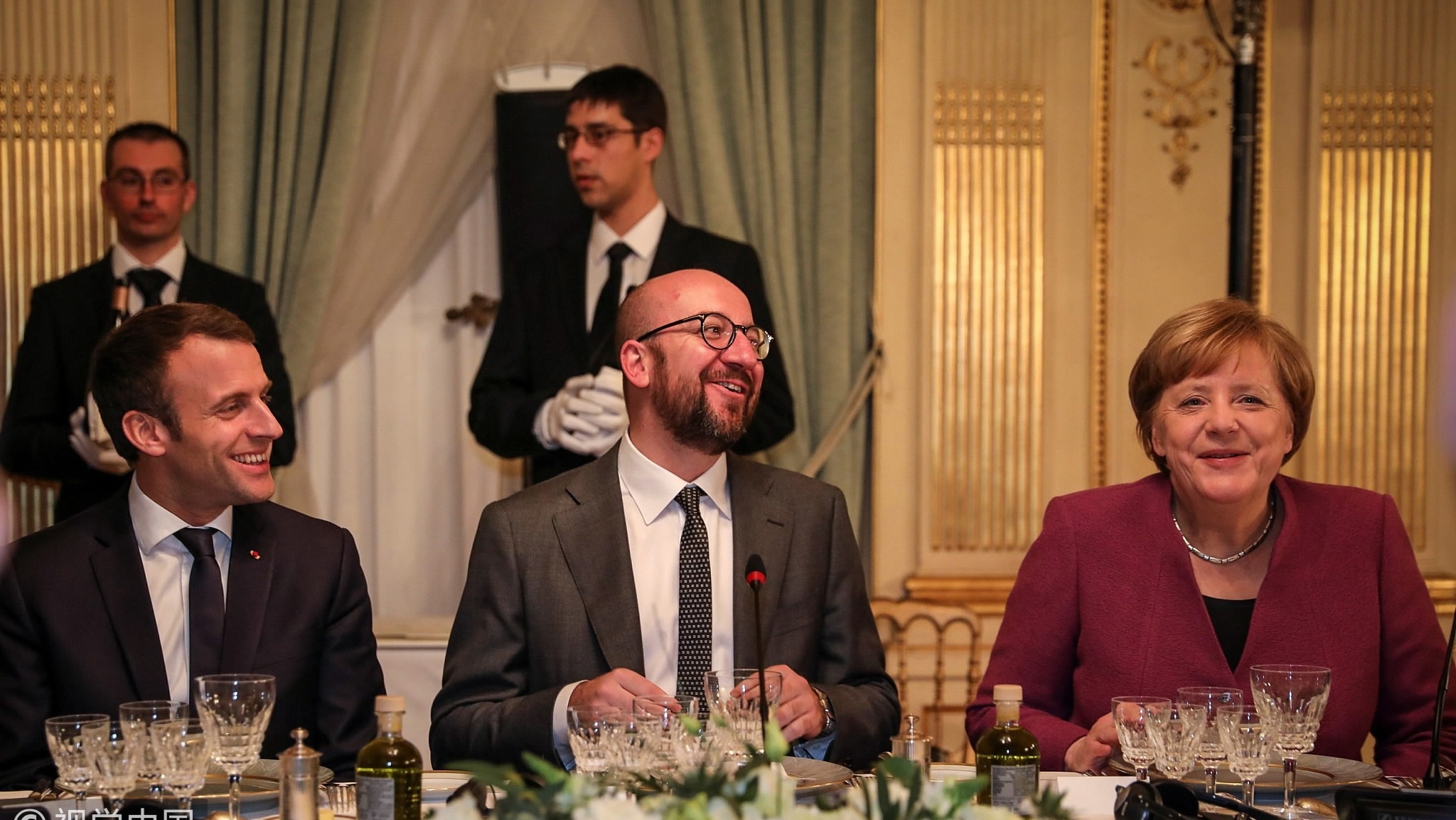
Belgian Prime Minister Charles Michel (C), French President Emmanuel Macron (L) and German Chancellor Angela Merkel (R) attend a dinner in Brussels, February 22, 2018. /VCG Photo
Belgian Prime Minister Charles Michel (C), French President Emmanuel Macron (L) and German Chancellor Angela Merkel (R) attend a dinner in Brussels, February 22, 2018. /VCG Photo
Britain was notoriously reluctant to sign up plans that pushed the EU towards further integration and some proposals previously held up by London have already been implemented, including the PESCO joint defense pact.
Brexit removes one roadblock to a closer union, but also creates a budgetary headache. Britain is one of the largest net contributors to the EU budget and Brexit means the loss of around 10 billion euros per year (although the UK is expected to continue to make smaller payments, depending on the exit deal).
Tackling the shortfall, deciding whether to expand the pot, and agreeing on spending priorities are expected to be central to Friday’s talks, and could throw up controversy and division.
Germany, France and Italy – the three biggest net contributors to the budget – are thought to be prepared to pay more, with conditions attached. The Netherlands, Sweden, Denmark and Austria argue that a smaller EU means a smaller budget.
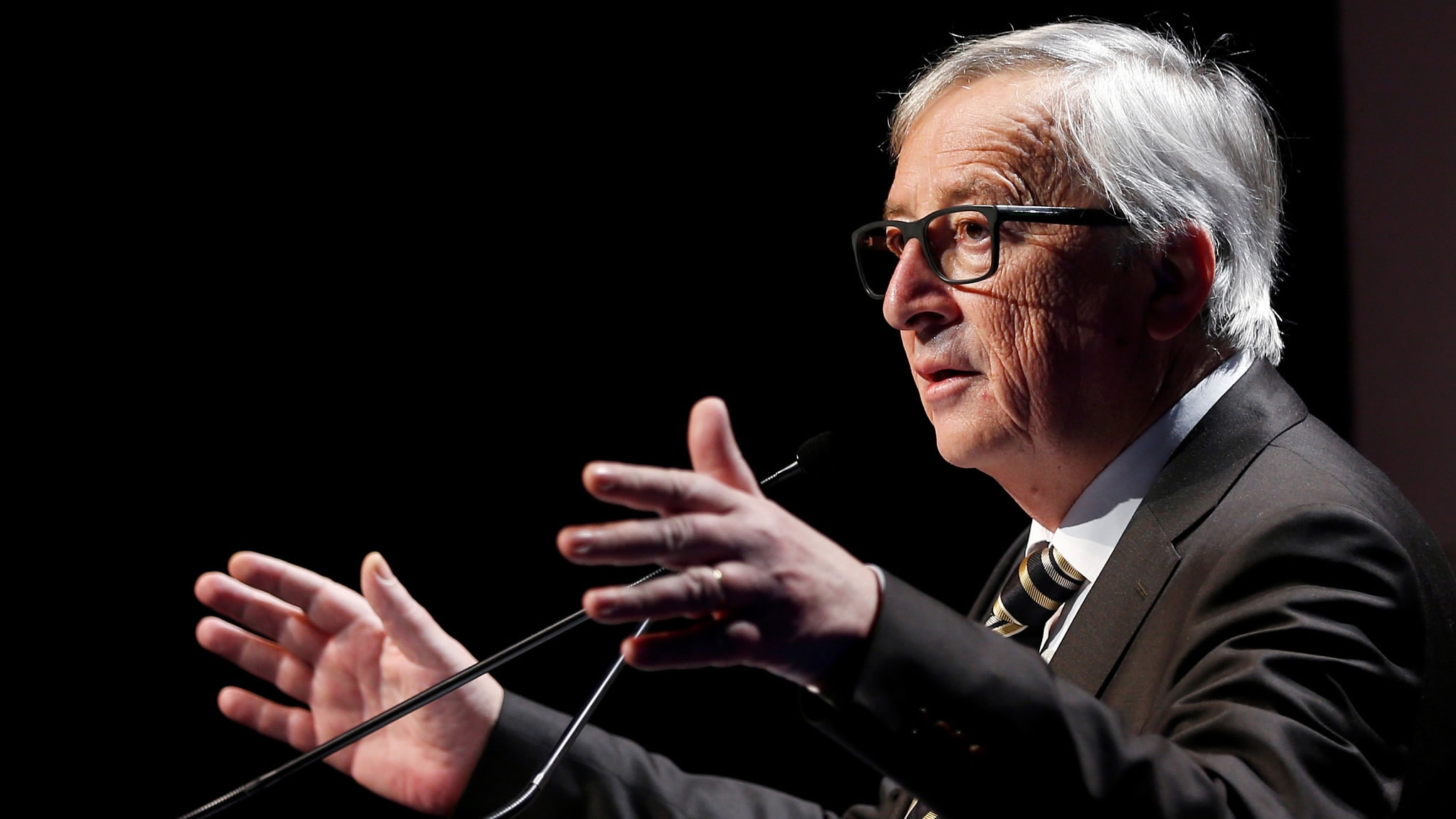
European Commission President Jean-Claude Juncker delivers a speech in Brussels, February 22, 2018. /VCG Photo
European Commission President Jean-Claude Juncker delivers a speech in Brussels, February 22, 2018. /VCG Photo
The European Commission has said the bloc must find additional sources of funding. Proposals including taking a share of returns from a common corporate tax and a cut of VAT revenue are unlikely to be popular with all members.
“We have those who do not want to pay more, and we have those who don’t want to receive less – that’s the only piece of unanimity that we have in the Council but these two things are not really swimming in the same channel,” European Commission President Jean-Claude Juncker said on Thursday, Politico reported. “So the logic has to change. We need a budget that matches our ambitions.”
European Parliament makeup
Britain has 73 seats in the 751-seat parliament, but is due to leave the EU before the next elections in May 2019.
Does this mean fewer seats post-Brexit; a rejigging of the remaining 27 members’ allocations (the parliament has recommended a reduction to 705, with 27 seats redistributed to 14 members to reflect demographic changes), or could the vacated chairs be elected on a Europe-wide transnational basis (as French President Emmanuel Macron wants)?
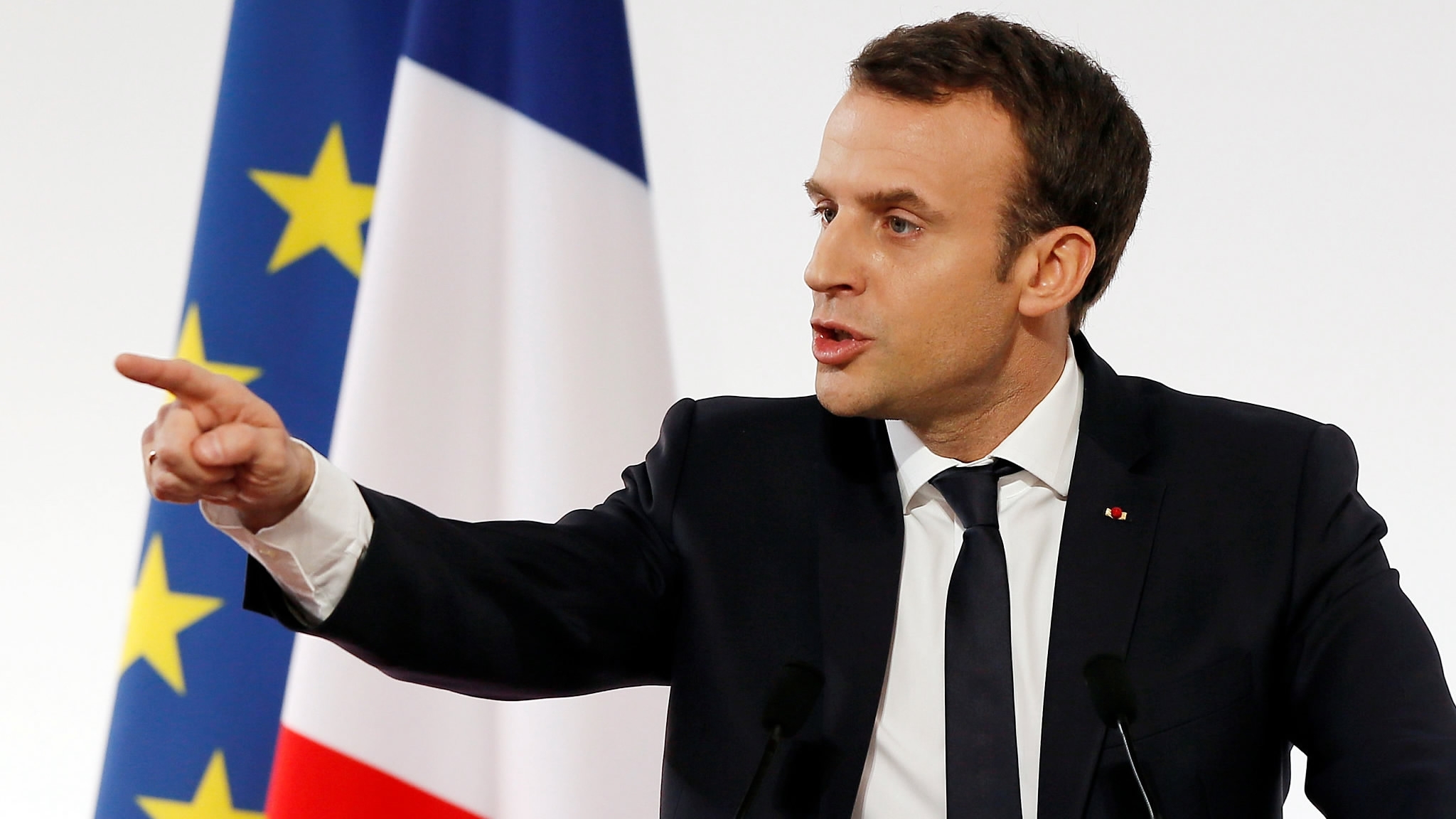
French President Emmanuel Macron speaking in Paris, February 22, 2018. /VCG Photo
French President Emmanuel Macron speaking in Paris, February 22, 2018. /VCG Photo
The French president argues that pan-EU lists would strengthen European democracy. Opponents warn it would be “elite-driven” and risks creating two classes of lawmaker.
EU Council President Donald Tusk on Thursday ruled out transnational elections before 2024 and appeared to support the proposal to reduce the parliament to 705 seats. Either change would require unanimous support from the European Council, made up of the leaders of the member states.
European Commission top job
The European Commission used the “Spitzenkandidat” process to elect Juncker as president in 2014, and the Luxembourgian is keen to make this – whereby the lead candidate of the European grouping with the most seats in parliament becomes Commission president – the norm.
This dilutes the power of the national leaders who make up the European Council, however, and several countries are keen to retain the lead candidate process with the option of choosing a candidate who isn’t from the winning party.
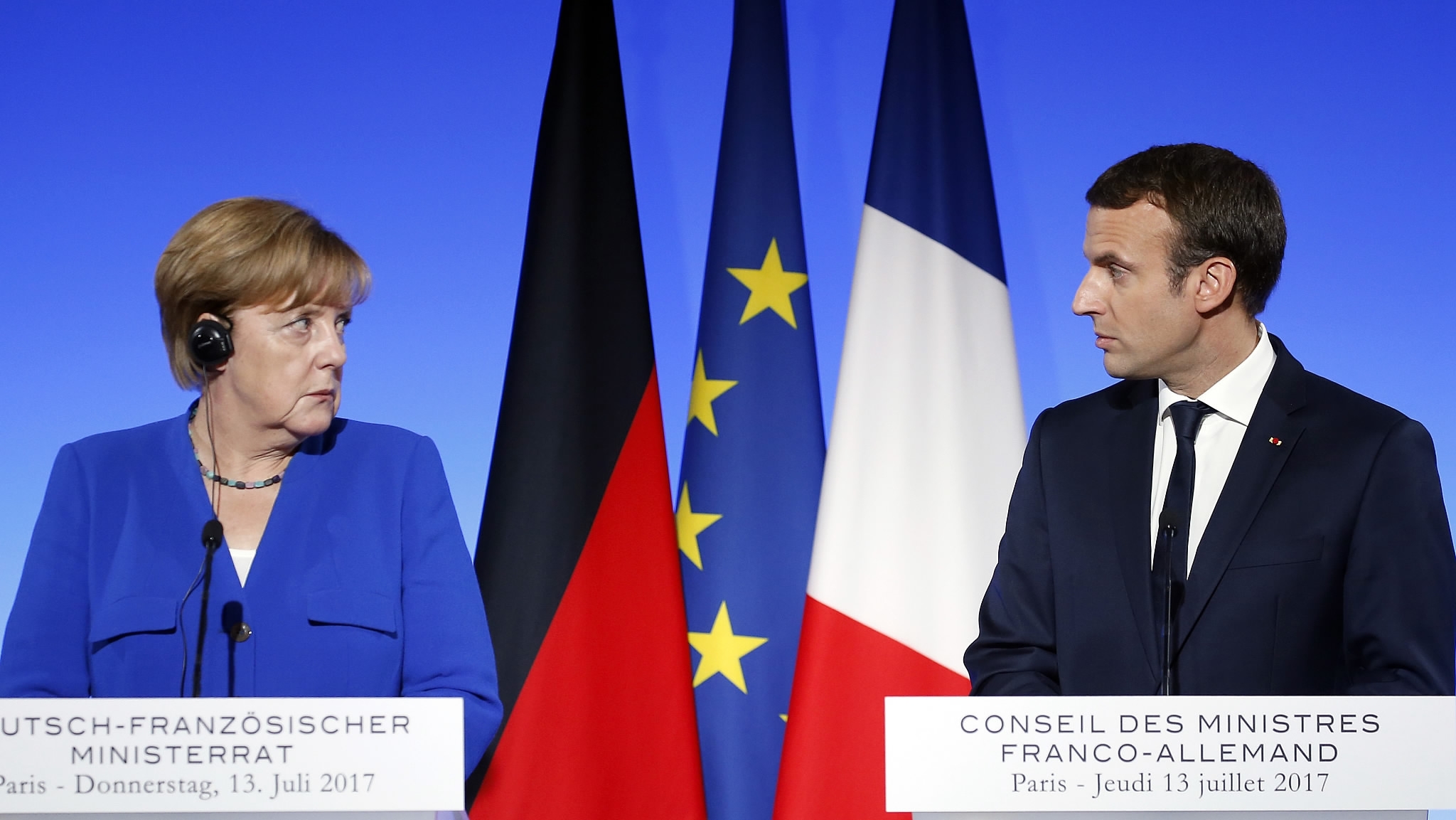
French President Emmanuel Macron and German Chancellor Angela Merkel at the Elysee Presidential Palace on July 13, 2017 in Paris. /VCG Photo
French President Emmanuel Macron and German Chancellor Angela Merkel at the Elysee Presidential Palace on July 13, 2017 in Paris. /VCG Photo
The issue raises the prospect of a split between the EU’s most powerful members: Germany backs the 2014 process, France wants a greater say on the ultimate selection and argues that the underlying treaty gives the European Council the responsibility of choosing the EU Commission president.
Macron’s Republique En Marche! movement is yet to align itself with any of the existing EU groups, potentially ruling itself out of having a candidate for the president under the 2014 process.
Juncker also wants to merge the role of European Commission president (currently his job) with that of European Council president (currently Donald Tusk’s job) to create a powerful figurehead for the EU.
The discussions on Friday are unlikely to address specifics, but the expected lack of consensus on fundamental issues points to the tricky negotiations the EU faces as it looks to the future – not only on Brexit.
7971km

SITEMAP
Copyright © 2018 CGTN. Beijing ICP prepared NO.16065310-3
Copyright © 2018 CGTN. Beijing ICP prepared NO.16065310-3